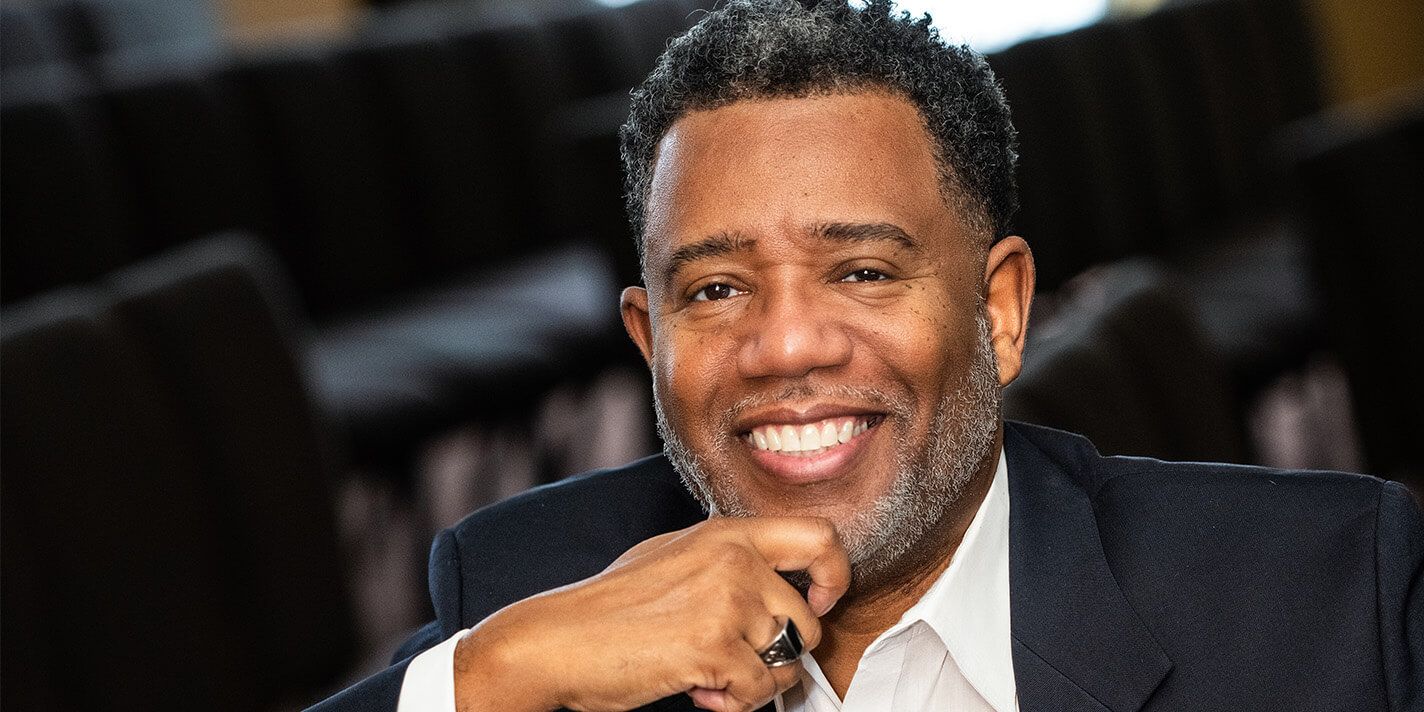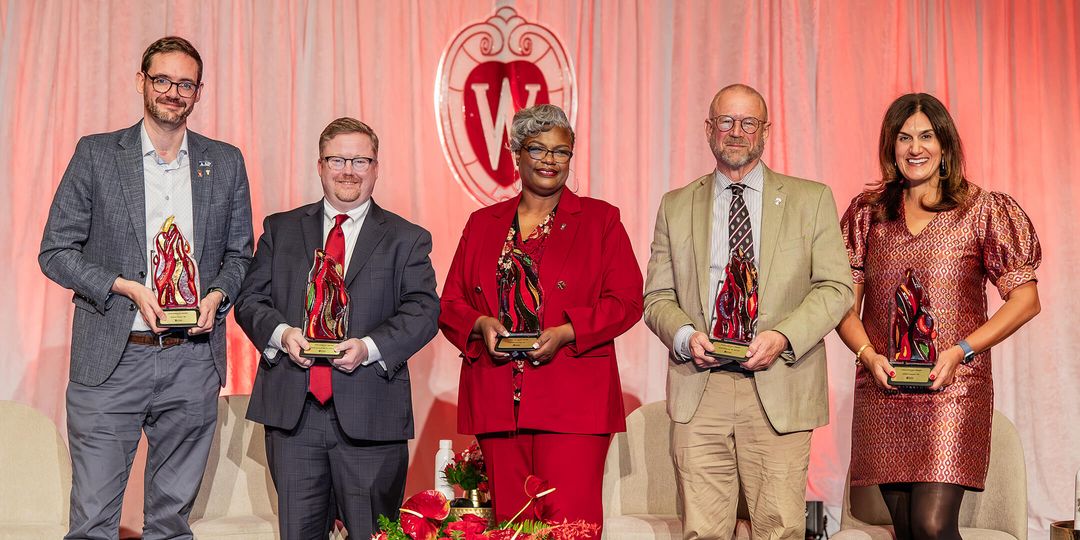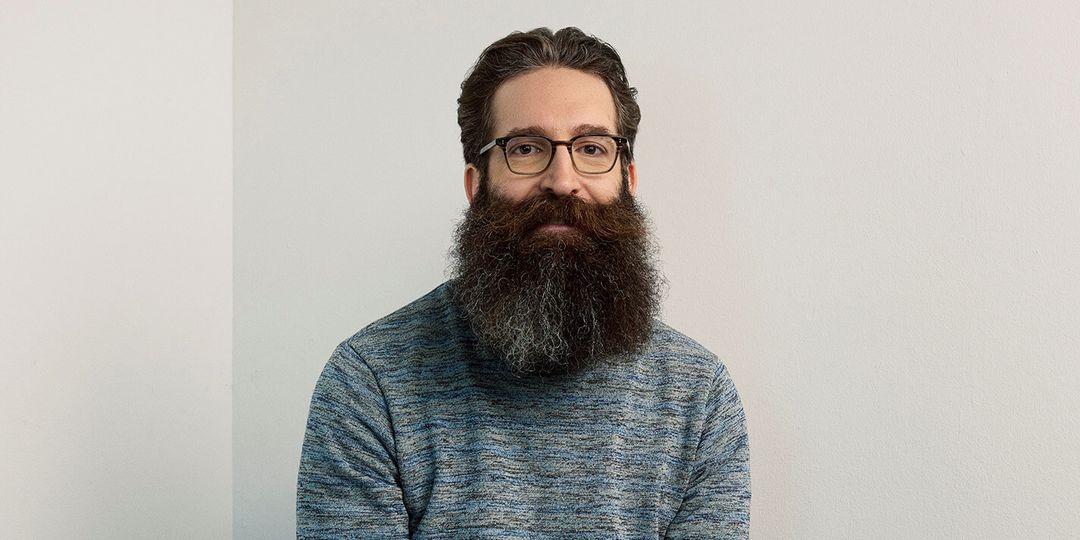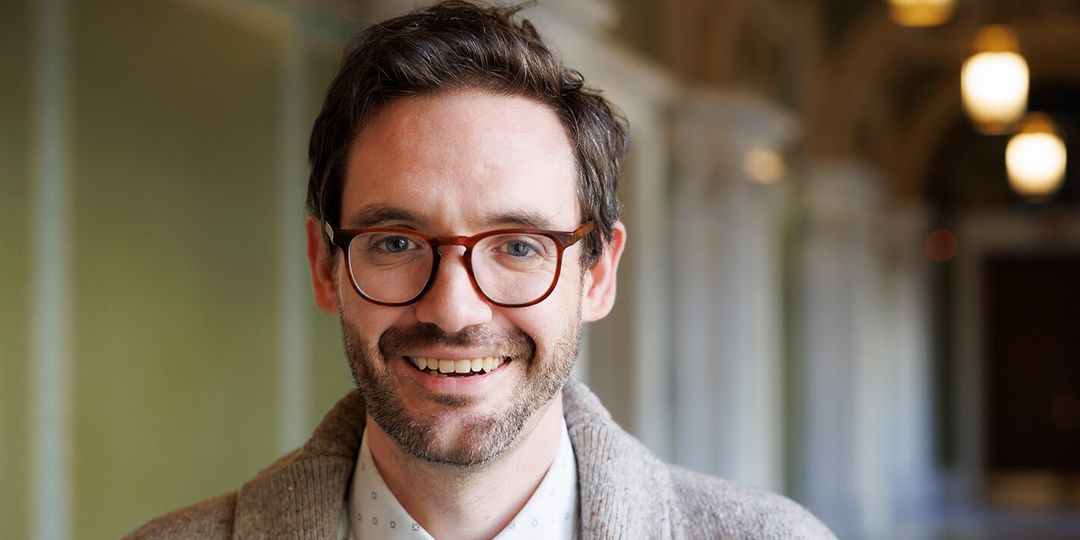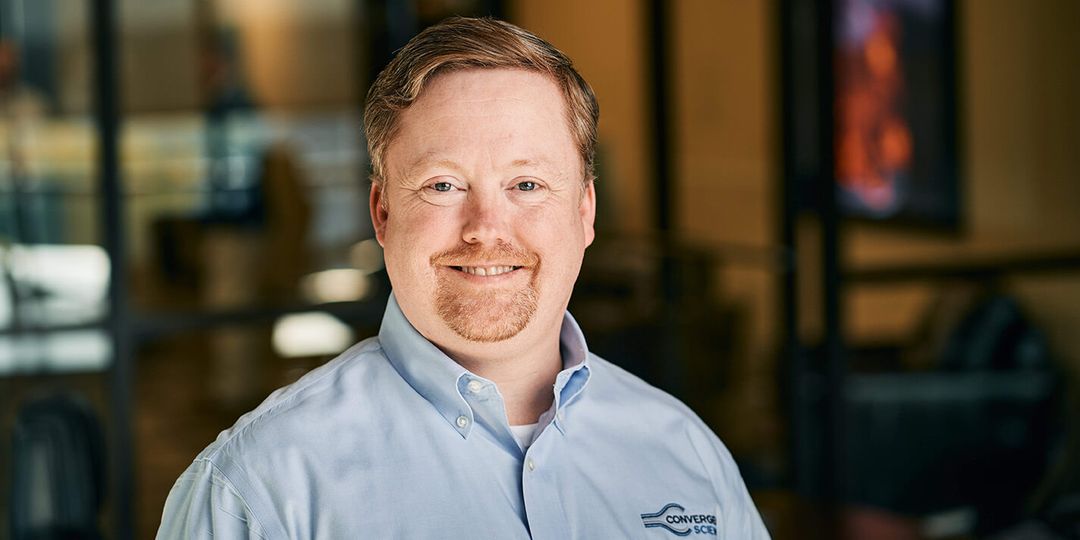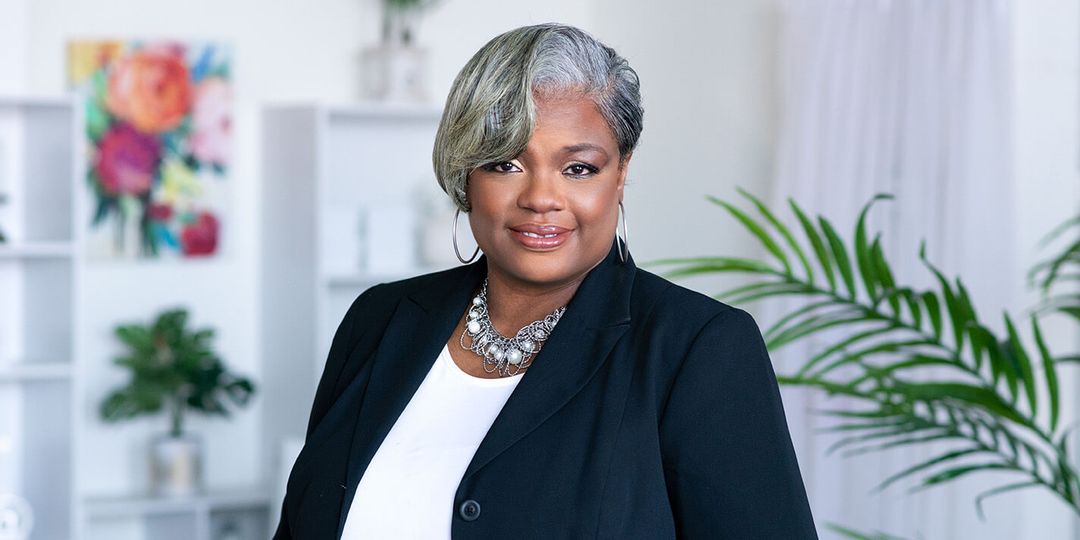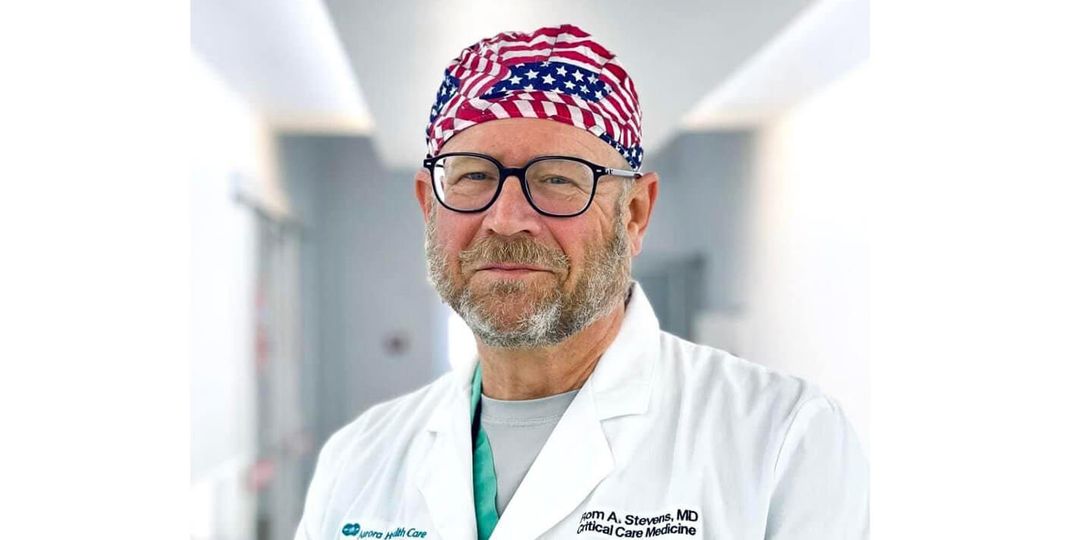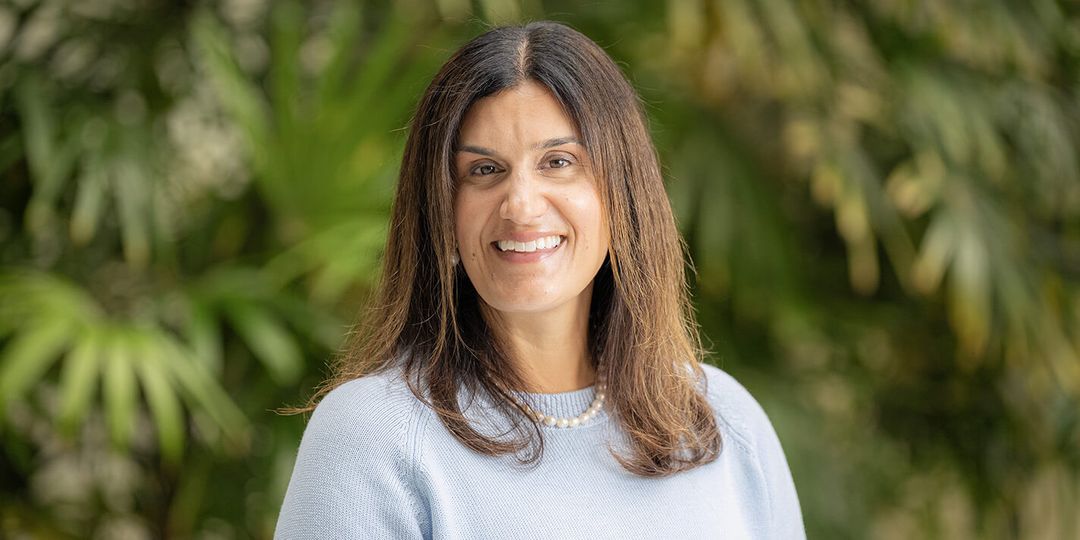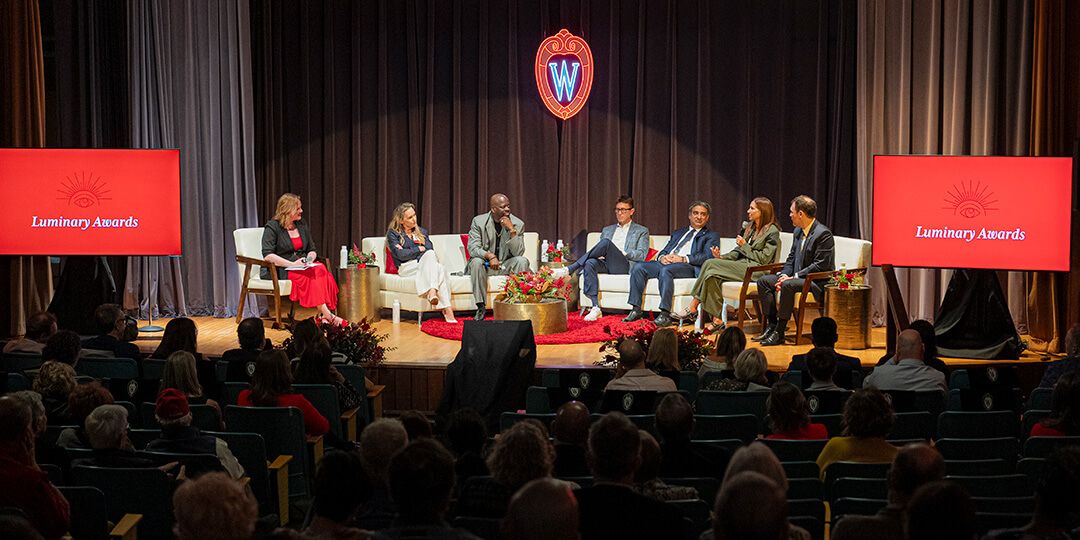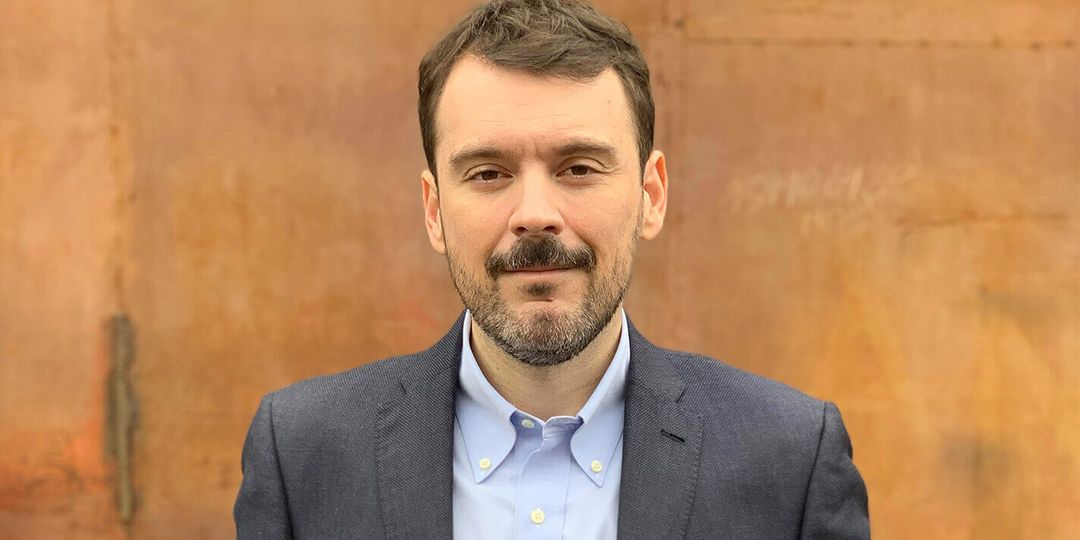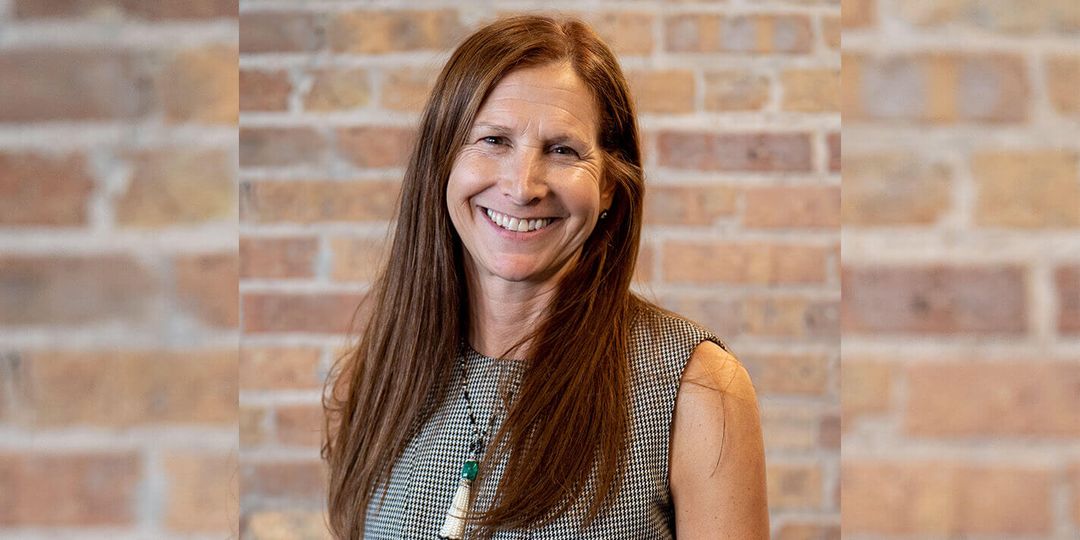UW Majors: African American Studies, Economics
Founder and CEO, The Center for Black Excellence and Culture
Founder and President, Nehemiah Center for Urban Leadership Development
Lead Pastor, Fountain of Life Church
Host, Black Like Me
Alexander Gee has spent a lifetime using his unique voice to inspire, educate, and advocate on behalf of the Black community in — and well beyond — Madison. Soon, his biggest project to date will open its doors to welcome and support a new generation of Black voices: the landmark Center for Black Excellence and Culture (The Center), located on Madison’s south side in its historic Black neighborhood.
“The Center is the evolution and fruition of everything I’ve dreamed of,” says Gee. “We’re offering a place where Black-led solutions are being created to bring healing and restitution to our Black community.” The Center will include a theater, a recording studio, an art gallery, a coworking space, a wellness space, a children’s education center, a senior space, and much more.
The seeds of Gee’s dream were planted in 1970, when his mother, Verline ’85, MS’87, visited a friend in Madison and fell in love with the UW campus. Verline was a factory worker who had dropped out of high school, but she was inspired by her visit to enroll in a then-experimental admissions and support program for Black students called the Five-Year Program. Gee was six years old when his mother moved the family from Chicago to Madison. Verline completed her bachelor’s and master’s degrees and inspired not only her own children to value education but also much of her extended family — Gee’s relatives collectively hold 13 degrees from UW–Madison, including his sister, Lilada; his wife, Jackie; and his daughter, Lexi.
Gee followed in Verline’s footsteps in 1981, enrolling in the second generation of the Five-Year Program, which by then was called the Academic Advancement Program. As a teenager, Gee was already a lay preacher for a “living-room congregation” that eventually grew into Madison’s thriving Fountain of Life Church. (He’s celebrating his 35th anniversary as a pastor this year.) While at the UW, Gee benefited from several nationally renowned professors, such as Nellie McKay, Cora Marrett MA’65, PhD’68, and Herbert Hill. In fact, during Gee’s second year, Hill — a prominent civil-rights and labor advocate — asked him about his unusual dual major.
“I said, I want a business background because I want to run something, and I’m studying African American history because I want to empower Black people,” Gee says. “I wanted to tie together business, the Black community, and faith, and doggone it if the university didn’t prepare me for the work I’m doing 40 years later.”
During his senior year, Gee was hired as a peer counselor for the Academic Advancement Program, a role that led to a series of campus staff positions related to student services and minority recruitment. Eventually, Gee asked Chancellor David Ward MS’62, PhD’63 to create a temporary community-relations role for him. “I told him, I’m starting a nonprofit, and I have no managerial experience. Can I observe how you manage a complex system like the university?” Ward hired him immediately and mentored Gee until the mid-1990s, when Gee left the UW to found the Nehemiah Center for Urban Leadership Development, which aims to empower Black families, invest in Black youth leadership development, and support formerly incarcerated men, among other initiatives. The Center is celebrating its 30th anniversary this year (2023).
Gee, in partnership with his family and his longtime friend Carmen Porco, is also creating a UW scholarship in honor of his mother. The Verline Gee Scholarship Fund will be housed in the Mercile J. Lee Scholars Program.
In 2018, Gee launched the award-winning Black Like Me podcast to platform other Black leaders across a range of industries in order to offer non-Black allies an honest peek into race relations in America. The podcast also became a crucial creative outlet for Gee to work through his own challenges and triumphs as a Black man in the United States. “I can be unapologetically Black and talk about what I see and what I think and what I feel,” he says. “And that ability to voice it helps me to not hold it all in.”
At the new Center, the link between creative expression and mental health is an important touchstone. The Center for Healthy Minds at the UW is partnering with The Center for Black Excellence and Culture to not only share mindfulness strategies with the Black community but also to engage and learn from members of the Black community, in order to create Black-led solutions that benefit all of society.
“We’ve got to be able to dig into whatever Black people have dug into for the last 400 years in this country that’s allowed us to survive,” Gee says. “That’s each other, our stories of resilience, and our rich culture.”
